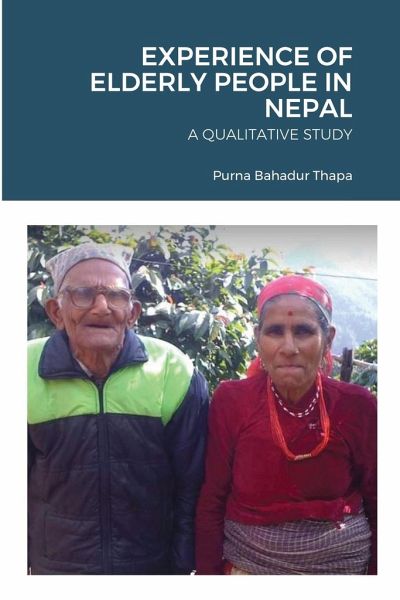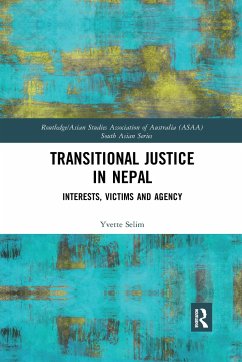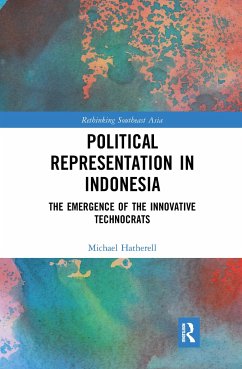
EXPERIENCE OF ELDERLY PEOPLE IN NEPAL
A QUALITATIVE STUDY
Versandkostenfrei!
Versandfertig in 1-2 Wochen
23,99 €
inkl. MwSt.

PAYBACK Punkte
12 °P sammeln!
Living longer is regarded as a triumph of human development. Progress in health services has brought noticeable increase in life expectancy and a reduction in mortalityand fertility rate. In general, wrinkled faces and sags, weak bones and changes in appearances manifest old age. In Nepal, by and large old age has been understood largely from the physical dimension; thus, there is wider belief that in old age people are frail and weak. The main purpose of this research is to explore perceptions and practices on old age. To explore this, I have employed an interpretative research paradigm and q...
Living longer is regarded as a triumph of human development. Progress in health services has brought noticeable increase in life expectancy and a reduction in mortalityand fertility rate. In general, wrinkled faces and sags, weak bones and changes in appearances manifest old age. In Nepal, by and large old age has been understood largely from the physical dimension; thus, there is wider belief that in old age people are frail and weak. The main purpose of this research is to explore perceptions and practices on old age. To explore this, I have employed an interpretative research paradigm and qualitative approach with purposive sampling method. The major findings of the study show that security concerns of old age have yet to get adequate attention from family members, society, and government. The elderly people have mixed opinions on their age: few consider that old age has brought lots of knowledge, experience and skills so they are resourceful, whereas othersassert themselvesas utterly dependent on family and helpless. Interestingly, it also reveals that longevity has provided an opportunity to ponder upon life and death and they tend to chase more spiritual gatherings and functions. This study also reveals the mounting generational gaps emerging in the families.














